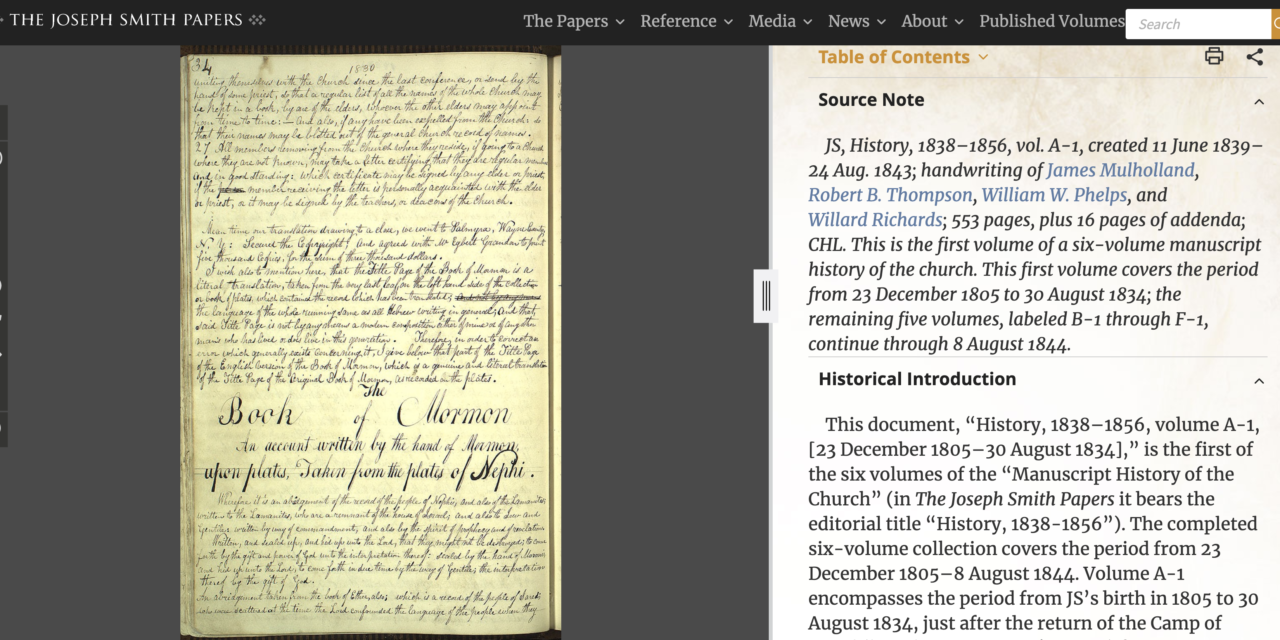I always try to find the Primary sources for quotes or teachings. The more I learn about memory and the brain, I realize that it’s plastic, that the brain does not always remember exactly well. Therefore, remembrances written years later from the events may not be accurate. Even though we think they are. Our own memories can be inaccurate. I find that very strange. But helpful in trying to make sense of historical records.
A long time ago, I became acquainted with the book Teachings of the Prophet Joseph Smith. I realized that Joseph Fielding Smith put it together, using many sources. And that’s ok. But as you know, I like to read things in context and not read quotes pulled out of the recorded history. And I like to know who recorded it, how they wrote it down when they wrote it down, and how long it had been from the actual experience. Notes are funny things. Go back and read some of your own that you wrote down while listening to some talk. And perspective is everything. Some people think something means this and another person, listening to the exact same talk, or reading the exact same material, will say it means something else. I’ve said to my husband, “oh, I didn’t think he meant that at all.” So, yes, we see and hear things from our own perspective.
I found a great resource that shows what sources Joseph Fielding Smith used for the book Teachings of the Prophet Joseph Smith. It is on the Joseph Smith Papers Project site —
https://www.josephsmithpapers.org/articles/sources-for-teachings-of-js-by-joseph-fielding-smith
Take a look at it when you have a question about one of the topics from the book. And always click on the source notes and the historical Introduction. Lots of good information.


